Smart Water Purification Systems: Features and Benefits for Homes & Industry
- Introduction
- Why search for Smart Water Purification Systems: Features and Benefits
- What are Smart Water Purification Systems?
- Definition and main components of smart water purification systems
- Key Features of Smart Water Purification Systems
- Real-time monitoring and sensor-driven control
- Remote access and mobile app control
- Automated maintenance and predictive diagnostics
- Adaptive treatment and optimization
- Integration, interoperability, and data logging
- Energy and resource management
- Benefits of Smart Water Purification Systems
- Improved water quality and safety
- Lower total cost of ownership (TCO)
- Reduced downtime and faster service response
- Regulatory compliance and reporting
- Sustainability and resource savings
- Feature Comparison: Traditional vs Smart Water Purification Systems
- Quick comparison table to evaluate smart water purification system advantages
- How to Choose the Right Smart Water Purification System
- Assess your water source, capacity needs, and treatment goals
- Look for certified components and proven performance
- Evaluate remote monitoring, service, and warranty options
- Calculate ROI and lifecycle costs
- Implementation and Maintenance Best Practices
- Professional installation and commissioning
- Adopt data-driven maintenance programs
- Ensure cybersecurity and data privacy
- Why Choose Aqualitek Water Treatment Technologies (AQT)
- AQT’s strengths in smart water purification system delivery
- Conclusion
- Smart water purification systems deliver measurable value
- Frequently Asked Questions
Introduction
Why search for Smart Water Purification Systems: Features and Benefits
When searching for Smart Water Purification Systems: Features and Benefits, users are typically comparing options to buy a reliable smart water purification system for residential, commercial, or industrial use. This guide explains core smart water purification system features, measurable benefits, and how smart systems improve water quality, lower operating costs, and enable regulatory compliance—helping you make an informed purchase decision.
What are Smart Water Purification Systems?
Definition and main components of smart water purification systems
Smart water purification systems combine traditional water treatment technologies (like reverse osmosis, ultrafiltration, UV disinfection, and activated carbon) with digital elements such as IoT sensors, cloud connectivity, and automated controls. Key system components include sensors (TDS, turbidity, pH, flow), programmable logic controllers (PLC), user interfaces (mobile apps or web dashboards), and actuated valves and dosing pumps for automated chemical control. These features make smart water purification systems suitable for residential water filtration, commercial water filtration, and industrial water treatment projects.
Key Features of Smart Water Purification Systems
Real-time monitoring and sensor-driven control
Modern smart water purification system features include high-accuracy sensors for TDS, turbidity, chlorine, and pH that provide continuous data. Real-time monitoring enables instant alerts for quality deviations, so facility managers and homeowners can act quickly. This functionality is critical when selecting a smart water purification system for commercial or industrial applications where water quality directly impacts processes and compliance.
Remote access and mobile app control
Commercial and residential buyers increasingly expect remote access when evaluating smart water purification systems. Mobile apps and web dashboards let operators view system status, change setpoints, and receive maintenance alerts—enabling faster response times and improved service efficiency for water purification system suppliers and end users.
Automated maintenance and predictive diagnostics
Smart systems automate routine maintenance tasks such as filter change reminders, membrane flushing, and pump performance checks. Predictive diagnostics use trend analysis to forecast component failures, minimizing downtime and helping purchasers reduce total cost of ownership for their smart water purification systems.
Adaptive treatment and optimization
Advanced controllers can adapt treatment intensity based on influent water conditions—e.g., increase backwash frequency during high turbidity events or adjust dosing during seasonal changes. This adaptive optimization is a key selling point for industrial buyers seeking efficient, consistent performance from smart water purification systems.
Integration, interoperability, and data logging
Smart water purification system features include integration with building management systems (BMS), SCADA, or enterprise resource planning (ERP) platforms. Data logging ensures traceability and supports regulatory reporting, making these systems attractive to commercial operators who need documented proof of water quality and treatment history.
Energy and resource management
Many smart water purification systems incorporate energy-saving modes, variable-frequency drives (VFDs) for pumps, and recovery optimization for membrane systems. These features lower operational costs and support sustainability goals—important benefits for companies evaluating smart water purification solutions for both cost savings and corporate responsibility.
Benefits of Smart Water Purification Systems
Improved water quality and safety
Smart purification offers continuous validation of treated water quality through sensors and automated alarms, ensuring safe drinking water for households and safe process water for industries. This reduces health risks and improves confidence in the water supply, a primary benefit for those researching smart water purification systems with health and safety priorities.
Lower total cost of ownership (TCO)
Although the upfront price for smart water purification systems can be higher than basic systems, features like predictive maintenance, automated dosing, and energy optimization reduce operating expenses and extend component life—delivering a lower TCO over the system lifecycle for residential and commercial buyers alike.
Reduced downtime and faster service response
Remote alerts and diagnostics allow service teams to identify and often resolve issues before a system fails. For commercial clients and industrial operators, reduced downtime translates to fewer production interruptions and lower service costs—key benefits when assessing the purchase of smart water purification systems.
Regulatory compliance and reporting
Smart systems can automatically record water quality data and generate compliance reports aligned with regulatory frameworks and standards (e.g., NSF/ANSI, local potable water regulations). This feature simplifies audits for businesses and municipal operators who need certified smart water purification systems to meet compliance requirements.
Sustainability and resource savings
Optimized operation reduces chemical use, lowers energy consumption, and improves membrane recovery rates, supporting corporate sustainability goals. Many buyers search for “smart water purification systems benefits” specifically for environmental impact and resource efficiency reasons.
Feature Comparison: Traditional vs Smart Water Purification Systems
Quick comparison table to evaluate smart water purification system advantages
| Criteria | Traditional System | Smart Water Purification System |
|---|---|---|
| Monitoring | Periodic manual checks | Continuous real-time monitoring (sensors & cloud) |
| Maintenance | Scheduled or reactive | Predictive & automated maintenance alerts |
| Operational cost | Lower initial cost, higher OPEX | Higher initial cost, lower lifecycle OPEX |
| Data & reporting | Manual logs | Automatic data logging and compliance reports |
| Scalability | Hardware upgrades needed | Modular, remotely configurable |
How to Choose the Right Smart Water Purification System
Assess your water source, capacity needs, and treatment goals
Start by testing your influent water (municipal, well, industrial) to determine contaminants and seasonal variability. Matching these results to the right smart water purification system features—such as RO for dissolved salts, UV for microbial safety, or activated carbon for organics—ensures effective performance for residential water purification or industrial process water applications.
Look for certified components and proven performance
Choose systems with certified membranes, pumps, and disinfection units that meet NSF/ANSI or other recognized standards. Certification gives buyers confidence in quality and is an important factor for companies comparing smart water purification systems for purchase.
Evaluate remote monitoring, service, and warranty options
Check the vendor’s remote monitoring capabilities, data retention policies, and service network. A strong service agreement reduces risk and helps justify investment in smart water purification systems—especially for commercial operations that depend on continuous water supply.
Calculate ROI and lifecycle costs
Consider energy use, consumables (membranes, cartridges), labor, and downtime when comparing smart water purification systems. Factor in savings from predictive maintenance and energy optimization to estimate payback period and long-term value.
Implementation and Maintenance Best Practices
Professional installation and commissioning
Proper installation and commissioning are essential for smart water purification system performance. Use certified installers who can calibrate sensors, validate remote telemetry, and confirm treatment performance under real operating conditions.
Adopt data-driven maintenance programs
Leverage the system’s analytics to create condition-based maintenance plans. This minimizes unplanned downtime and ensures the smart water purification system operates at peak efficiency while extending component life.
Ensure cybersecurity and data privacy
When systems are connected, secure communication protocols, user authentication, and data encryption are essential. Vendors should provide clear policies to protect operational data and user privacy for corporate and residential customers evaluating smart water purification systems.
Why Choose Aqualitek Water Treatment Technologies (AQT)
AQT’s strengths in smart water purification system delivery
Aqualitek Water Treatment Technologies Co., Ltd. (AQT), headquartered in Guangzhou, China, manufactures advanced and customizable water treatment systems and high-quality component parts. AQT combines engineering expertise, manufacturing excellence, and IoT-enabled system integrations to deliver smart water purification systems for residential, commercial, and industrial clients worldwide. AQT supports full lifecycle services—design, build, install, remote monitoring, and after-sales—making it easy to implement and maintain smart water purification solutions that meet your business needs.
Conclusion
Smart water purification systems deliver measurable value
Smart water purification systems bring real-time visibility, automated controls, predictive maintenance, and integration capabilities that result in better water quality, lower lifecycle costs, and improved compliance. Whether you need a residential smart water purification system, a commercial solution for a hotel or office building, or an industrial-scale treatment plant, choosing the right features and a trusted supplier like AQT ensures reliable performance and long-term value.
Frequently Asked Questions
What is a smart water purification system and how does it differ from a conventional system?
A smart water purification system integrates traditional treatment technologies with sensors, automatic controls, and remote connectivity. Unlike conventional systems that rely on manual checks, smart systems provide continuous monitoring, automated maintenance alerts, and remote control—reducing downtime and operational costs.
How do smart water purification systems improve water quality verification?
They use online sensors (TDS, turbidity, pH, free chlorine) to continuously validate treated water. Data logging and automatic reporting support traceability and regulatory compliance, giving end users and facility managers real-time assurance of water quality.
Are smart water purification systems cost-effective for small businesses or homes?
While the initial investment may be higher, remote monitoring, predictive maintenance, and energy optimization reduce operating expenses and extend component life, often delivering a favorable return on investment over the system’s lifetime.
What certifications should I look for when buying a smart water purification system?
Look for recognized certifications such as NSF/ANSI for components and performance, plus vendor adherence to local potable water regulations. Certified components and systems support safety and compliance requirements.
Can smart water purification systems integrate with existing facility controls?
Yes. Most commercial-grade smart systems provide protocols (Modbus, MQTT, BACnet) or API options to integrate with building management systems (BMS) or SCADA for centralized operation and data sharing.
How does Aqualitek support smart water purification system deployment?
AQT offers end-to-end solutions: water testing and system design, manufacturing of high-quality components, IoT-enabled control systems, professional installation, and global after-sales service. AQT tailors solutions for residential, commercial, and industrial needs to ensure reliable, compliant performance.
Sources:
- World Health Organization (WHO) guidance on household water treatment and safe storage
- U.S. Environmental Protection Agency (EPA) documents on water treatment technologies
- NSF International / ANSI standards for water treatment components (e.g., NSF/ANSI 53, 58)
- International Water Association (IWA) publications on smart water systems
- Industry reports on IoT adoption in water treatment and best practices for monitoring and maintenance

Skid-Mounted RO Systems: Benefits and Design Tips
Common Contaminants and How Systems Remove Them
How a Water Purification System Works: Simple Explanation

ROI and TCO Analysis for a 12TPH Industrial UF Water Treatment Device
Membrane Water Treatment Systems
How long do membranes last?
With proper maintenance and CIP, UF and RO membranes can last 3–5 years, depending on feed water quality and system design.
What’s the difference between UF and RO?
UF (Ultrafiltration) removes suspended solids, bacteria, and larger molecules. RO (Reverse Osmosis) removes dissolved salts and minerals. They’re often used together for complete treatment.
Solutions
Can AQT provide custom water treatment solutions?
Yes! We specialize in OEM/ODM water treatment solutions and can design custom filtration systems tailored to your business, industry, or brand requirements. Our team can assist with system design, branding, private labeling, and technical support.
Ion Exchange Water Treatment Systems
What is the difference between softening and deionization?
Softening removes only hardness ions (Ca²⁺, Mg²⁺), while deionization removes both cations and anions to produce high-purity water.
FAQ-aqualitek
How often should I replace filters and membranes?
Filter and membrane lifespan depends on water quality, usage, and system type. General guidelines:
1. Sediment & Carbon Filters: Replace every 6–12 months.
2. RO Membranes: Replace every 2–3 years, depending on water conditions.
3. UF/NF Membranes: Replace every 1–2 years.
Regular maintenance ensures optimal performance and water quality.

500 LPH Reverse Osmosis (RO) Water Purification Machine TWV - 412
Our 500 LPH Reverse Osmosis (RO) System is engineered to provide high-quality purified water for commercial applications. Designed with advanced RO technology, durable components, and a user-friendly interface, this system ensures consistent performance, low maintenance, and long-term reliability.
With its compact design and robust skid-mounted frame, it’s an excellent choice for businesses that demand efficiency and quality in water purification.

Tap Water Reverse Osmosis (TWRO) Systems TWV Series
TWV series Reverse Osmosis (RO) systems are pre-engineered and pre-assembled units with 2.5”/4” membrane housings(single element type)for tap water(lower TDS).They are designed for overall superior performance, high recovery rates and offer great savings with low maintenance and operation costs.

Tap Water Reverse Osmosis (TWRO) Systems TWF Series
TWF series Reverse Osmosis (RO) systems are pre-engineered and pre-assembled units with 4” membrane housings(multiple elements type) for tap water(lower TDS) .The medium large volumes can help meet your a variety of commercial and industrial applications. They are designed for overall superior performance, high recovery rates and offer great savings with low maintenance and operation costs.

Tap Water Reverse Osmosis (TWRO) Systems TWE Series
TWE series Reverse Osmosis (RO) systems are pre-engineered and pre-assembled units with 8” membrane housings for tap water (lower TDS). The large volumes can help meet your a variety of industrial applications. They are designed for overall superior performance, high recovery rates and offer great savings with low maintenance and operation costs.
Request More Information
Contact us today for product catalogs, customization options, and a free quotation designed for your business needs.
Rest assured that your privacy is important to us, and all information provided will be handled with the utmost confidentiality.
© 2026 AQUALITEK. All rights reserved.

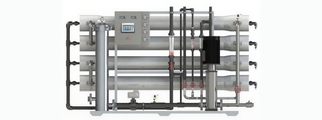
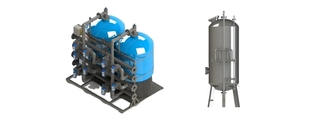
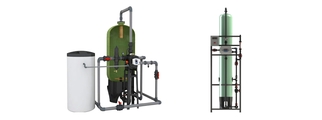
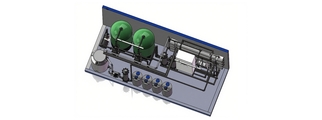
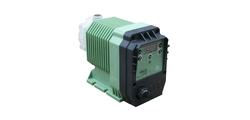
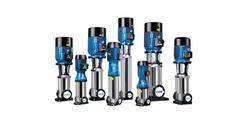
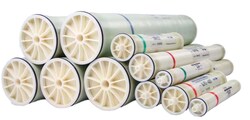
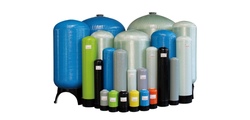
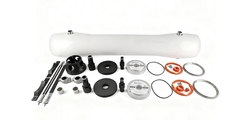
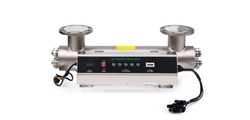
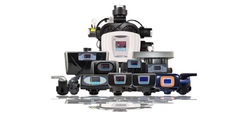
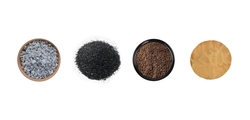
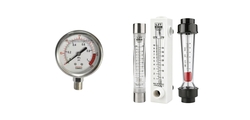
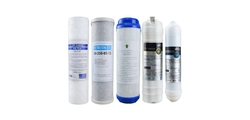
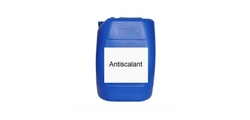
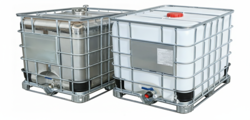
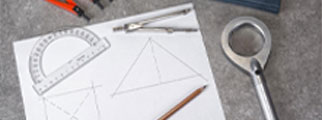



AQUALITEK- Aimee Hoo
AQUALITEK - Aimee Hoo